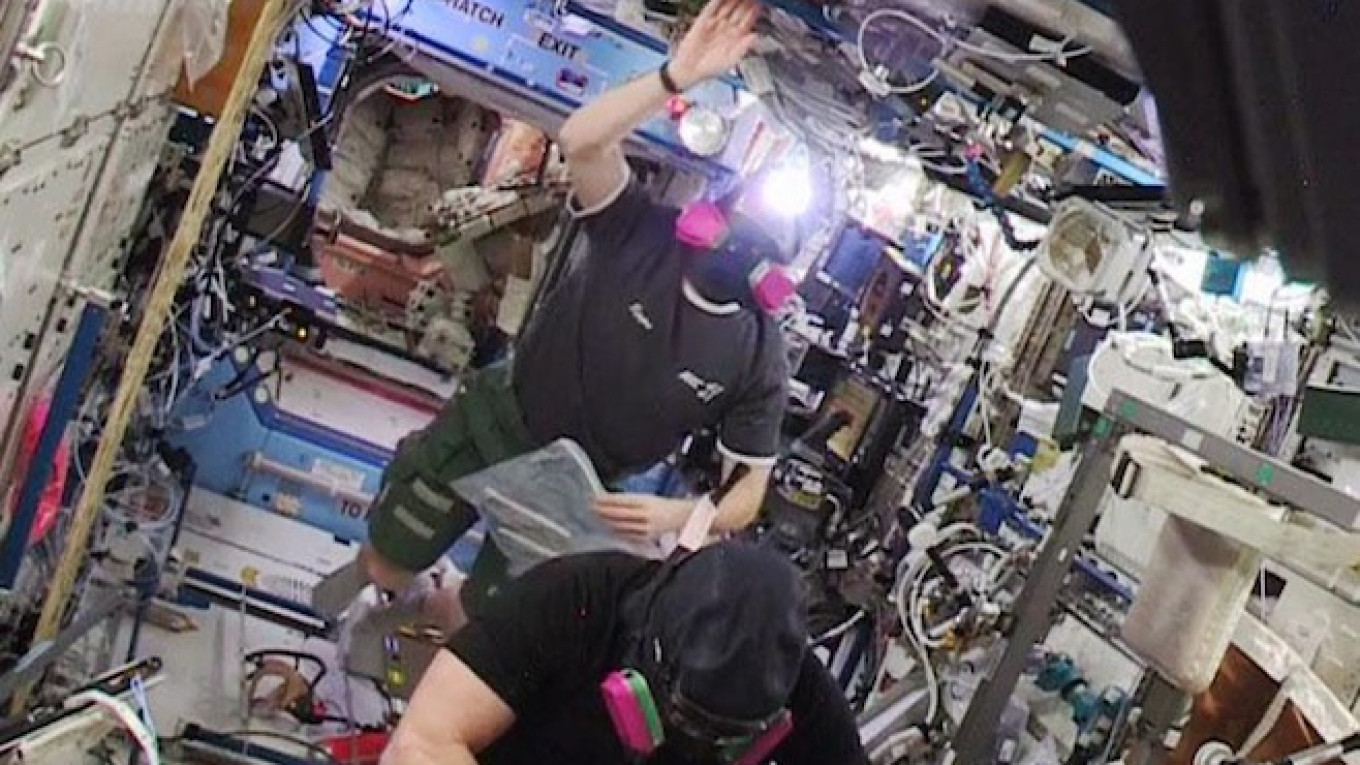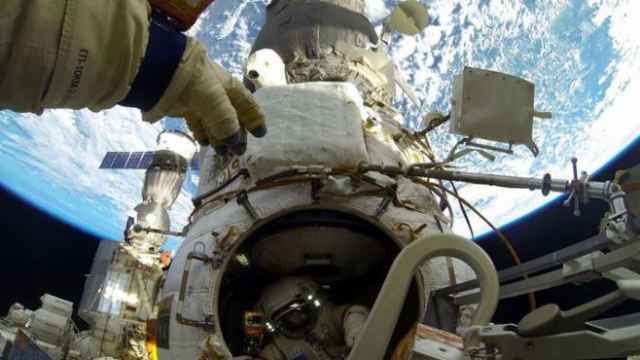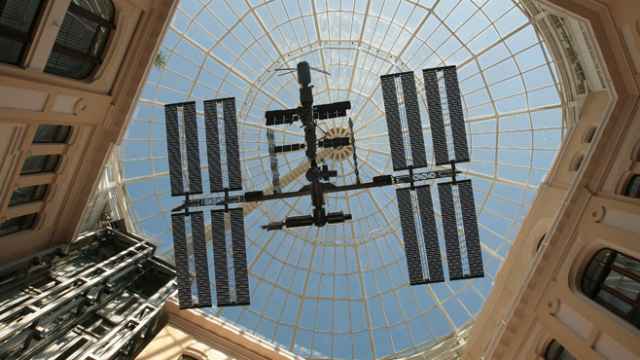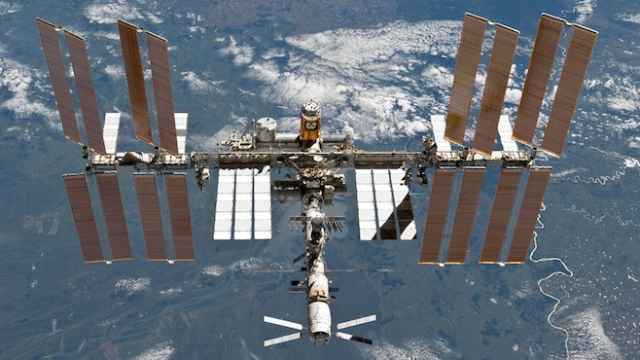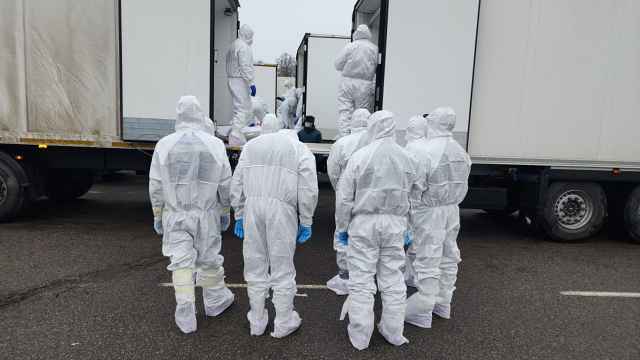Astronauts returned to the U.S. side of the International Space Station on Wednesday after sheltering most of the day in Russia's modules while ground teams assessed a potential ammonia leak, NASA said.
Wearing masks as a precaution, astronauts opened the hatch between the Russian and U.S. section at 3:05 p.m. EST (2005 GMT), about 11 hours after an alarm raised concerns about a possible leak of the toxic substance.
"No indication of ammonia," said NASA mission commentator Rob Navias. "Crew doffed their masks and are getting about their evening business."
U.S. station commander Butch Wilmore, NASA flight engineer Terry Virts and Samantha Cristoforetti, a flight engineer with the European Space Agency, left the U.S. side at around 4 a.m. (0900 GMT) and joined their three Russian colleagues in the Russian half of the orbital outpost, a research laboratory that flies about 260 miles or 418 kilometers, above Earth.
Mike Suffredini, the station program manager in Houston, said the evacuation reflected initial concerns that ammonia may have escaped from one of two cooling loops used to dissipate heat from water lines.
"There was never any risk to the crew," he added.
After the alarm, the astronauts put on masks, moved to the Russian side and closed hatches between the modules. Later they returned to the U.S. lab, but evacuated a second time after rising air pressure indicated a threat might still be present.
Later analysis showed a computer glitch triggered several false readings, tricking the station's software into setting off the alarm, said NASA associate administrator Bill Gerstenmaier.
The crew was about two hours into their workday when they retreated to the Russian section. They had planned to spend Wednesday unpacking a Space Exploration Technologies Dragon cargo capsule that arrived on Monday and setting up new scientific experiments.
The station, staffed by rotating crews of six astronauts and cosmonauts, is a project involving 15 nations, led by the United States and Russia. It has been permanently occupied since November 2000.
A Message from The Moscow Times:
Dear readers,
We are facing unprecedented challenges. Russia's Prosecutor General's Office has designated The Moscow Times as an "undesirable" organization, criminalizing our work and putting our staff at risk of prosecution. This follows our earlier unjust labeling as a "foreign agent."
These actions are direct attempts to silence independent journalism in Russia. The authorities claim our work "discredits the decisions of the Russian leadership." We see things differently: we strive to provide accurate, unbiased reporting on Russia.
We, the journalists of The Moscow Times, refuse to be silenced. But to continue our work, we need your help.
Your support, no matter how small, makes a world of difference. If you can, please support us monthly starting from just $2. It's quick to set up, and every contribution makes a significant impact.
By supporting The Moscow Times, you're defending open, independent journalism in the face of repression. Thank you for standing with us.
Remind me later.


